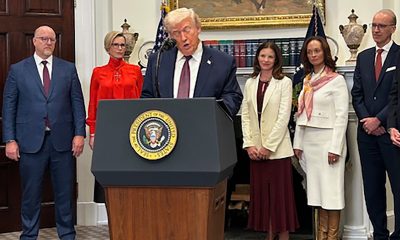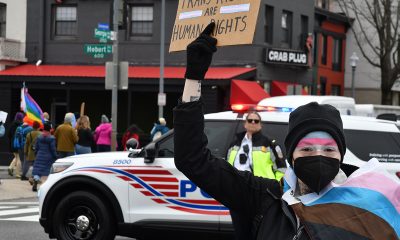a&e features
Netflix resurrects Dahmer, triggering criticism
Milwaukee gay activist says series re-traumatizes victims’ families
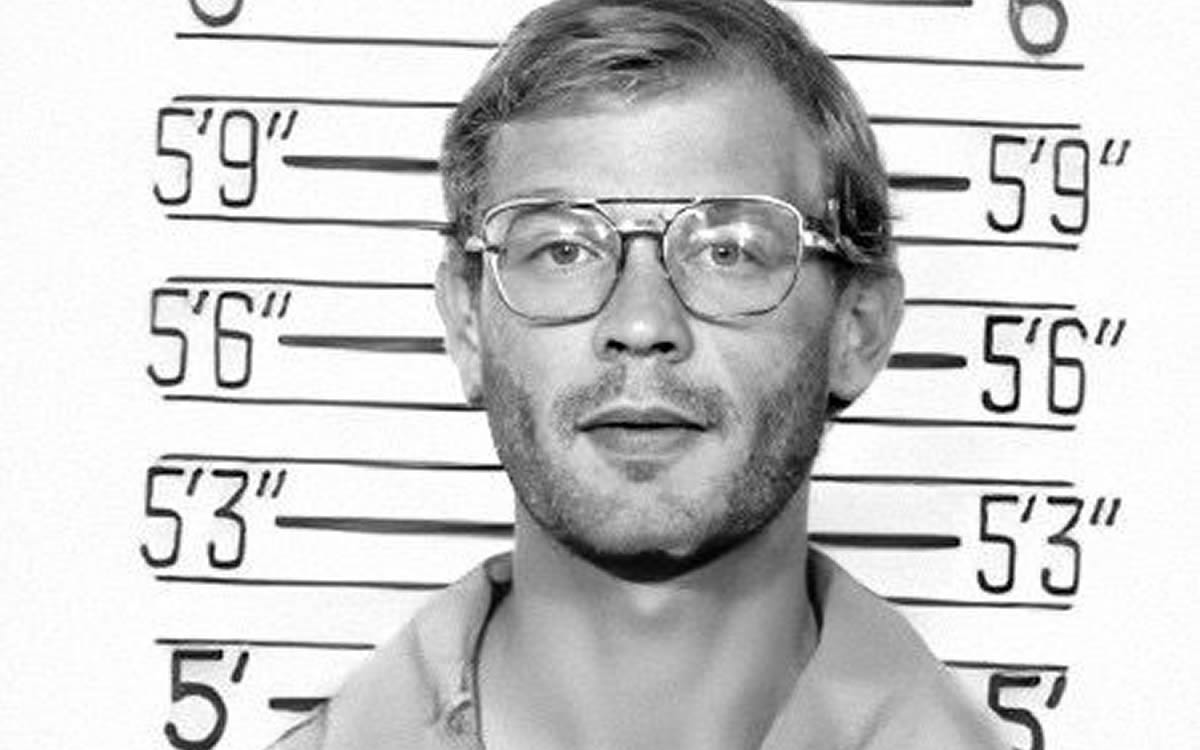
A 10-episode series on gay serial killer Jeffrey Dahmer released by Netflix on Sept. 21 captures in chilling detail Dahmer’s 13-year murder spree that took place mostly in Milwaukee between 1978 and 1991 in which 17 young mostly gay men, 11 of whom were Black, lost their lives.
The dramatized series, with actor Evan Peters playing the lead role of Dahmer, shows how Dahmer met many of his victims in Milwaukee gay bars, lured them to his apartment by promising to pay them to pose for nude photographs, and drugged and strangled them to death before mutilating and sometimes cannibalizing their bodies.
The series, called “Monster: The Jeffrey Dahmer Story,” has set a record for being the most watched first week release of any Netflix streaming series, according to media reports.
But one viewer who said he stopped watching the series after the first two episodes is longtime Milwaukee gay activist Scott Gunkel, who worked as a bartender at one of the gay bars where Dahmer met at least two of the young men he murdered.
Gunkel, 62, told the Blade he and others of his generation who lived through the trauma of the Dahmer murder spree view the Netflix series as yet another movie rehashing a troubling and painful occurrence.
“It really won’t, I don’t think, aid anybody,” he said. “I don’t think the victims’ families and friends will want to watch and hear this. So, this is just re-victimizing the people that went through this personally.”
Added Gunkel, “I knew a couple of the people he killed – patrons of the bar. They weren’t close friends. I just happened to know that they came to my bar, and I served them drinks.”
“There has been a big effort to have people boycott Netflix over this,” Gunkel said. “And I’m like, OK, it is a macabre story. I don’t know if you need to go quite that far with a boycott. Just don’t watch it,” he said.
Netflix has said the series is respectful to the victims and their families and its aim is to tell the story of how and why Dahmer became one of America’s most notorious serial murderers “as authentically as we could,” according to a statement by Peters in a promotional video posted on Twitter.
Gunkel and others familiar with the Dahmer case point out that few if anyone in Milwaukee or elsewhere knew a serial killer was on the loose in their community until the time of Dahmer’s arrest on July 22, 1991, after his 18th potential victim escaped and contacted police.
Police and prosecutors at that time revealed the discovery of body parts and other evidence found in Dahmer’s apartment, including multiple photos that Dahmer had taken of the corpses and body parts of his victims. Dahmer a short time later confessed to having committed 17 murders, the first in Ohio and the others in Wisconsin, with most taking place in Milwaukee where he lived. He provided prosecutors with the full gruesome details of how he carried out those murders.
Media reports show Dahmer pleaded guilty to 15 of the 17 murders on grounds of insanity, which resulted in a two-week trial to determine whether he was legally sane when he committed the murders. In February 1992, the jury found him sane in each of the murders. A judge then sentenced him to 15 consecutive sentences to life in prison.
Two years later, at the age of 34, Dahmer was beaten to death at Wisconsin’s Columbia Correctional Institution by an inmate who told authorities that God told him to kill Dahmer.
Gunkel said some in the Milwaukee gay community and the African-American community reached out to each other when the list of Dahmer’s victims released by police shortly after his arrest showed most were Black gay men.
Gunkel said he remembers the news reports of several Black women who lived near the apartment building in the mostly Black neighborhood saying they tried to alert police to what they suspected was criminal activity by Dahmer.
One of the reports that triggered widespread criticism of how the police allegedly mishandled the Dahmer case involved a Black woman who called police when she saw someone she described as an Asian boy standing outside the apartment building where Dahmer lived naked and bleeding with just a towel wrapped around him.
It later became known that the person the woman saw was Konerak Sinthasomphone, a 14-year-old Laotian immigrant, who Dahmer met on the street, lured to his apartment, and drugged. Reports show the youth escaped from the apartment after Dahmer left to go to a store to replenish his own supply of liquor.
When Dahmer returned, he saw police talking to Konerak and the woman outside the apartment building and quickly told one of the officers that the youth was 19 years old and was in a gay relationship with him and the two had a lover’s quarrel.
To the amazement of members of the LGBTQ and African-American communities, who later learned of this development, the police allowed Dahmer to take the youth back to his apartment. One of the officers reportedly made a homophobic remark about his interaction with Dahmer and the youth in a recorded comment to a police dispatcher. Dahmer later killed Konerak, police reports show.
Community activists, including Gunkel, who at the time was president of the Milwaukee gay rights group Lambda Rights Network, said the police disregard for the concern raised by the Black woman, who believed Konerak was in danger, was an example of how racial bias on the part of at least some in the Milwaukee police department may have enabled Dahmer to continue his killing spree.
In the weeks following sometimes sensational media reports and statements by police about Dahmer’s role as a confessed gay mass murderer, LGBTQ activists in Milwaukee reported a sharp rise in anti-gay harassment and threats, including harassment targeting gay bar patrons.
“Although gay people were among Dahmer’s victims, biased statements on the part of the police and some media have linked his murderous behavior to all gay and lesbian people,” the then National Gay and Lesbian Task Force said in a statement.
An August 1991 story in the Washington Blade reports that Gunkel expressed strong concern that a police investigator used the term “homosexual overkill” to describe Dahmer’s action. Gunkel and other activists also pointed to police statements that Dahmer confessed to having engaged in sex with some of his victims and most of the victims were Black. But the police and media reports at the time did not also report that nearly all the victims were also gay.
Rather than being seen as victims, Gunkel said, gays were being portrayed as predators through a “prism” of longtime stereotypes. “We look at this as a hate crime,” said Gunkel in his 1991 comment reported in the Blade. “His patronizing of gay bars shows he was stalking gays. The bars were his feeding grounds.”
Gunkel told the Blade in a phone interview last week, 31 years after Dahmer’s arrest and the revelations of the scope of his murder spree, gay bar patrons at the time the killings were taking place did not equate the disappearance of bar patrons with anything particularly unusual.
He noted that at the time, the AIDS epidemic was still going strong and he and others at the bars sometimes thought a regular customer who suddenly stopped coming to the bar may have gotten sick.
“So, a lot of people stopped going out when they started getting sick,” he said, “And other people would get into relationships and stop going out,” Gunkel told the Blade. “And when they didn’t show up people just kind of blew it off as somebody who’s not around anymore.”
According to Gunkel, the sensational revelations of Dahmer’s killing spree and the fact that he met many of his victims in Milwaukee gay bars prompted many in the LGBTQ community to stop going to bars and gay meeting places. But he said that didn’t last very long.
Gunkel said that like others who lived through what he calls the macabre time that Dahmer’s actions became known, the Netflix series brought back his own memories of interacting with Dahmer at Club 219, the Milwaukee gay bar where he worked as a bartender.
“The few times that I saw him at the bar I refused to serve him because he was drunk,” Gunkel said. “And I thought, you know, I’m not going to serve this person. He’s already pretty smashed.”
a&e features
Queer highlights of the 2026 Critics Choice Awards: Aunt Gladys, that ‘Heated Rivalry’ shoutout and more
Amy Madigan’s win in the supporting actress category puts her in serious contention to win the Oscar for ‘Weapons’
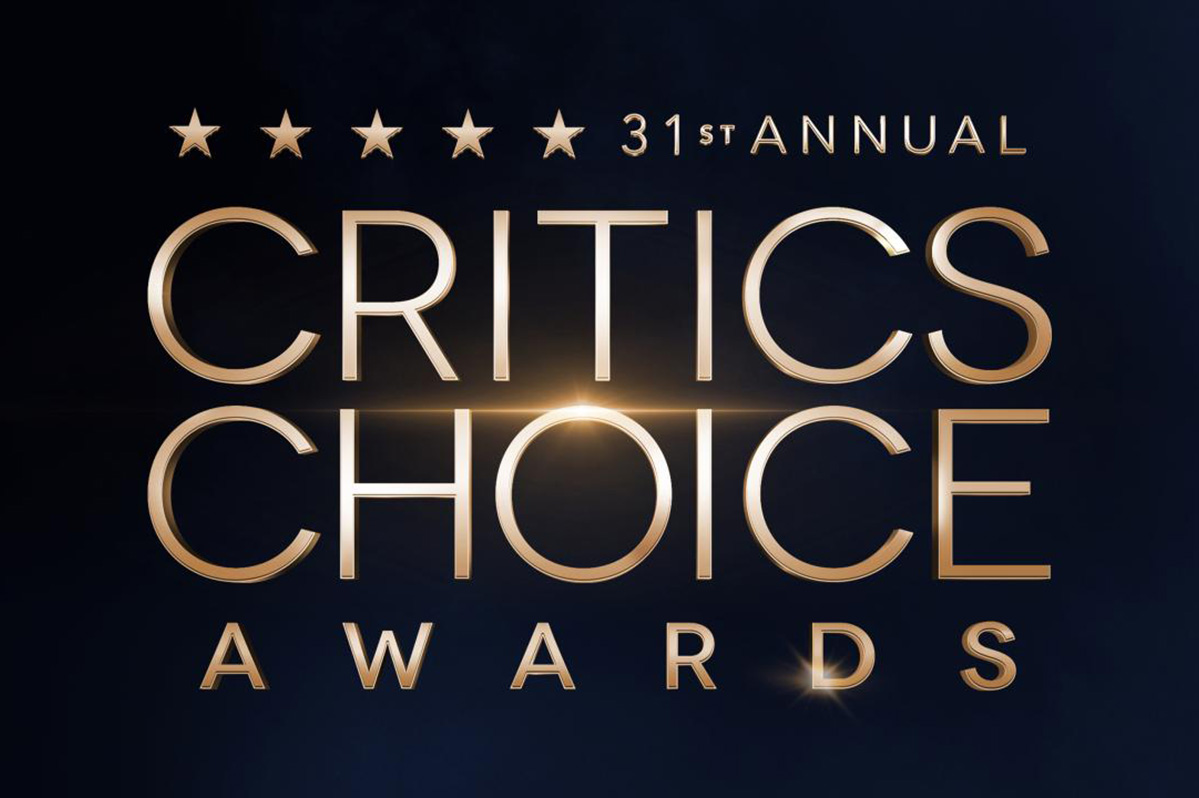
From Chelsea Handler shouting out Heated Rivalry in her opening monologue to Amy Madigan proving that horror performances can (and should) be taken seriously, the Critics Choice Awards provided plenty of iconic moments for queer movie fans to celebrate on the long road to Oscar night.
Handler kicked off the ceremony by recapping the biggest moments in pop culture last year, from Wicked: For Good to Sinners. She also made room to joke about the surprise hit TV sensation on everyone’s minds: “Shoutout to Heated Rivalry. Everyone loves it! Gay men love it, women love it, straight men who say they aren’t gay but work out at Equinox love it!”
The back-to-back wins for Jacob Elordi in Frankenstein and Amy Madigan in Weapons are notable, given the horror bias that awards voters typically have. Aunt Gladys instantly became a pop culture phenomenon within the LGBTQ+ community when Zach Cregger’s hit horror comedy released in August, but the thought that Madigan could be a serious awards contender for such a fun, out-there performance seemed improbable to most months ago. Now, considering the sheer amount of critics’ attention she’s received over the past month, there’s no denying she’s in the running for the Oscar.
“I really wasn’t expecting all of this because I thought people would like the movie, and I thought people would dig Gladys, but you love Gladys! I mean, it’s crazy,” Madigan said during her acceptance speech. “I get [sent] makeup tutorials and paintings. I even got one weird thing about how she’s a sex icon also, which I didn’t go too deep into that one.”
Over on the TV side, Rhea Seehorn won in the incredibly competitive best actress in a drama series category for her acclaimed performance as Carol in Pluribus, beating out the likes of Emmy winner Britt Lower for Severance, Carrie Coon for The White Lotus, and Bella Ramsey for The Last of Us. Pluribus, which was created by Breaking Bad’s showrunner Vince Gilligan, has been celebrated by audiences for its rich exploration of queer trauma and conversion therapy.
Jean Smart was Hack’s only win of the night, as Hannah Einbinder couldn’t repeat her Emmy victory in the supporting actress in a comedy series category against Janelle James, who nabbed a trophy for Abbott Elementary. Hacks lost the best comedy series award to The Studio, as it did at the Emmys in September. And in the limited series category, Erin Doherty repeated her Emmy success in supporting actress, joining in yet another Adolescence awards sweep.
As Oscar fans speculate on what these Critics Choice wins mean for future ceremonies, we have next week’s Golden Globes ceremony to look forward to on Jan. 11.
a&e features
Looking back at the 10 biggest A&E stories of 2025
‘Wicked,’ Lady Gaga’s new era, ‘Sexy’ Bailey and more
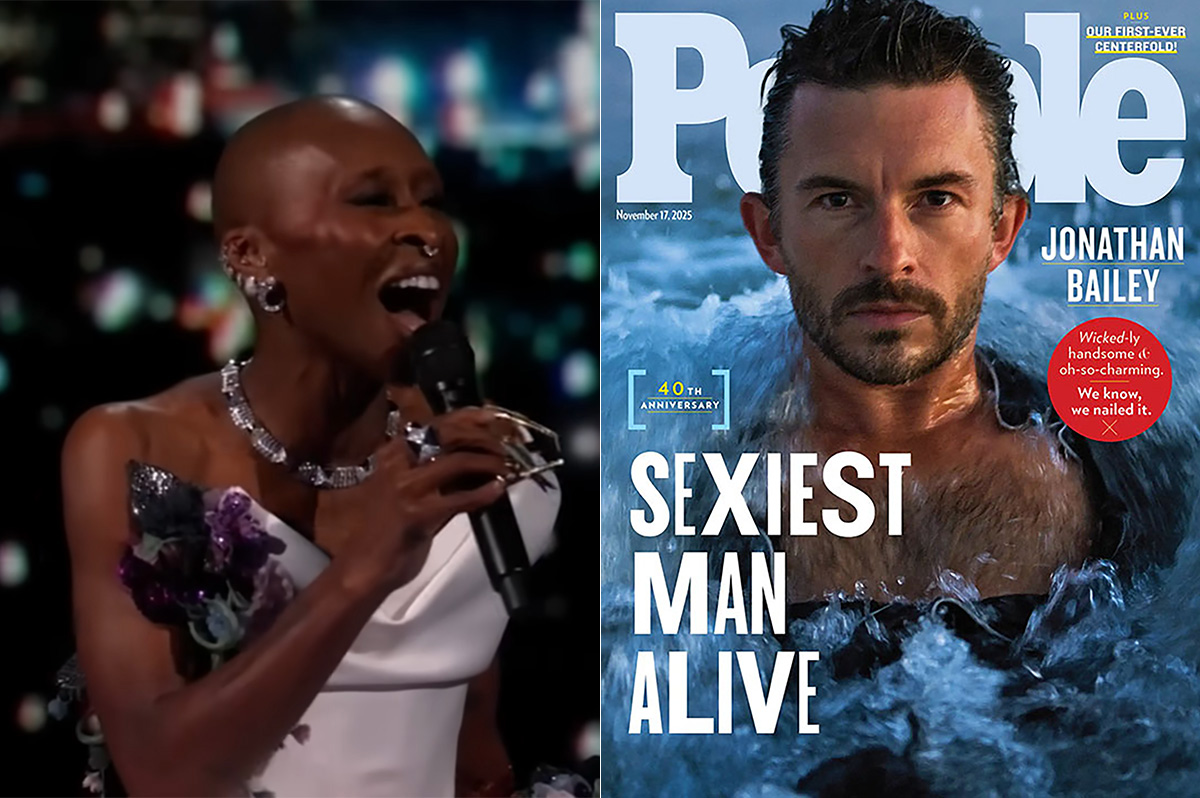
Although 2025 was a year marked by countless attacks on trans rights and political setbacks, the year also saw brilliant queer artists continuing to create art. From Cannes and Sundance Award winners now vying for Oscar consideration to pop icons entering new stages of their careers, queer people persevered to tell their stories through different media.
With the state of the world so uncertain, perhaps there’s no more vital time to celebrate our wins, as seen through some of this year’s top pop culture moments. While there’s no collection of 10 stories that fully encompass “the most important” news, here are some events that got the gays going:
10. ‘Mysterious Gaze of the Flamingo’ wins big at Cannes
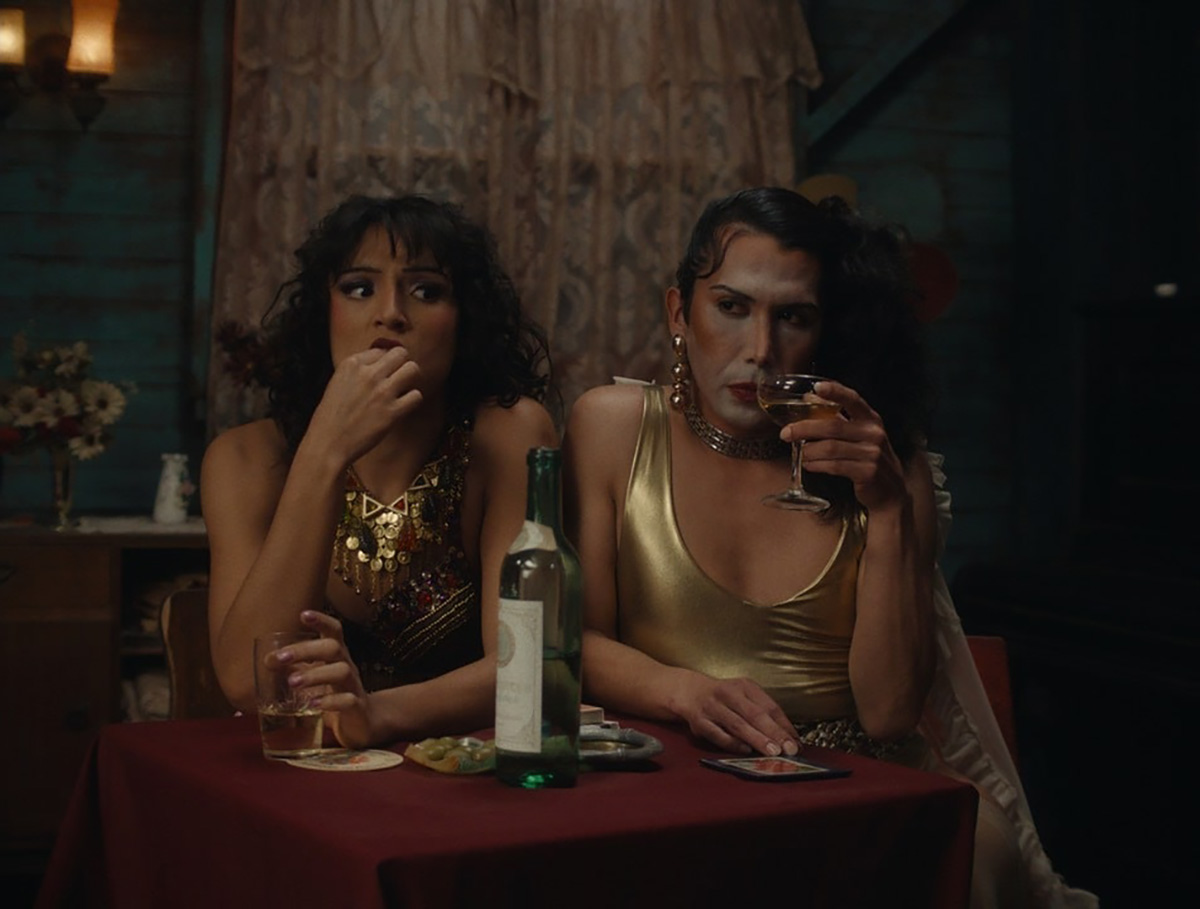
The Cannes Film Festival has become a crucial start for films hoping to make their way to the Oscars, and first-time director Diego Céspedes won the top Un Certain Regard prize for his intimate western “The Mysterious Gaze of the Flamingo.” The film is set in the ‘80s and is intended as an allegory for the AIDS epidemic. Seeing a film that unpacks vital queer history win one of the most coveted awards at Cannes has been a huge point of pride in the independent filmmaking community.
Since the film bowed at Cannes, it has been selected as Chile’s Oscar entry in the Best International Feature race. Speaking with The Blade during the film’s AFI Fest run in October, Céspedes said: At first, I was kind of scared to have this campaign position in the times that we’re living [in] here. But at the same time, I think the Oscars mean a huge platform — a huge platform for art and politics.”
9. ‘The Last of Us’ returns for an even gayer season 2
While the first season of The Last of Us gave us one of TV’s most heartbreaking queer love stories in the episode “Long, Long Time,” Season 2 doubled down on its commitment to queer storytelling with the blossoming relationship between Ellie (Bella Ramsey) and Dina (Isabela Merced). The show expanded on the pair’s relationship in the original video game, making it perhaps the central dynamic to the entire season. That unfortunately came with more homophobic backlash on the internet, but those who checked out all the episodes saw a tender relationship form amid the show’s post-apocalyptic, often violent backdrop. For their performance, Ramsey was once again nominated for an Emmy, but Merced deserved just as much awards attention.
8. ‘Emilia Pérez’ sparks controversy
Jacques Audiard’s genre-bending trans musical “Emilia Pérez” proved to be an awards season juggernaut this time last year, winning the Golden Globe for Best Musical/Comedy. But when the lead star Karla Sofia Gascón’s racist, sexist, and homophobic old tweets resurfaced, the film’s Oscar campaign became a tough sell, especially after Netflix had tried so hard to sell Emilia Pérez as the “progressive” film to vote for. Mind you, the film had already received significant backlash from LGBTQ+ audiences and the Mexican community for its stereotypical and reductive portrayals, but the Gascón controversy made what was originally just social media backlash impossible to ignore. The only person who seemed to come out of the whole debacle unscathed was Zoe Saldaña, who won the Oscar for Best Supporting Actress over Ariana Grande.
7. ‘Sorry, Baby’ establishes Eva Victor as major talent
Back in January at the Sundance Film Festival, Eva Victor (known by many for her brand of sketch comedy) premiered their directorial debut “Sorry, Baby” to rave reviews, even winning the Waldo Salt Screening Award. Victor shadowed Jane Schoenbrun on the set of “I Saw the TV Glow,” and seeing Victor come into their own and establish such a strong voice immediately made them one of independent cinema’s most exciting new voices. A memorable scene in the film sees the main character, Agnes (played by Victor), struggling to check a box for male or female, just one example of how naturally queerness is woven into the fabric of the story.
Most recently, Victor was nominated for a Golden Globe for her performance in the film, and she’s represented in a category alongside Jennifer Lawrence (“Die My Love”), Jessie Buckley (“Hamnet”), Julia Roberts (“After the Hunt”), Renate Reinsve (“Sentimental Value”) and Tessa Thompson (“Hedda”). The film also received four Independent Spirit Award nominations overall.
6. Paul Reubens comes out in posthumous doc
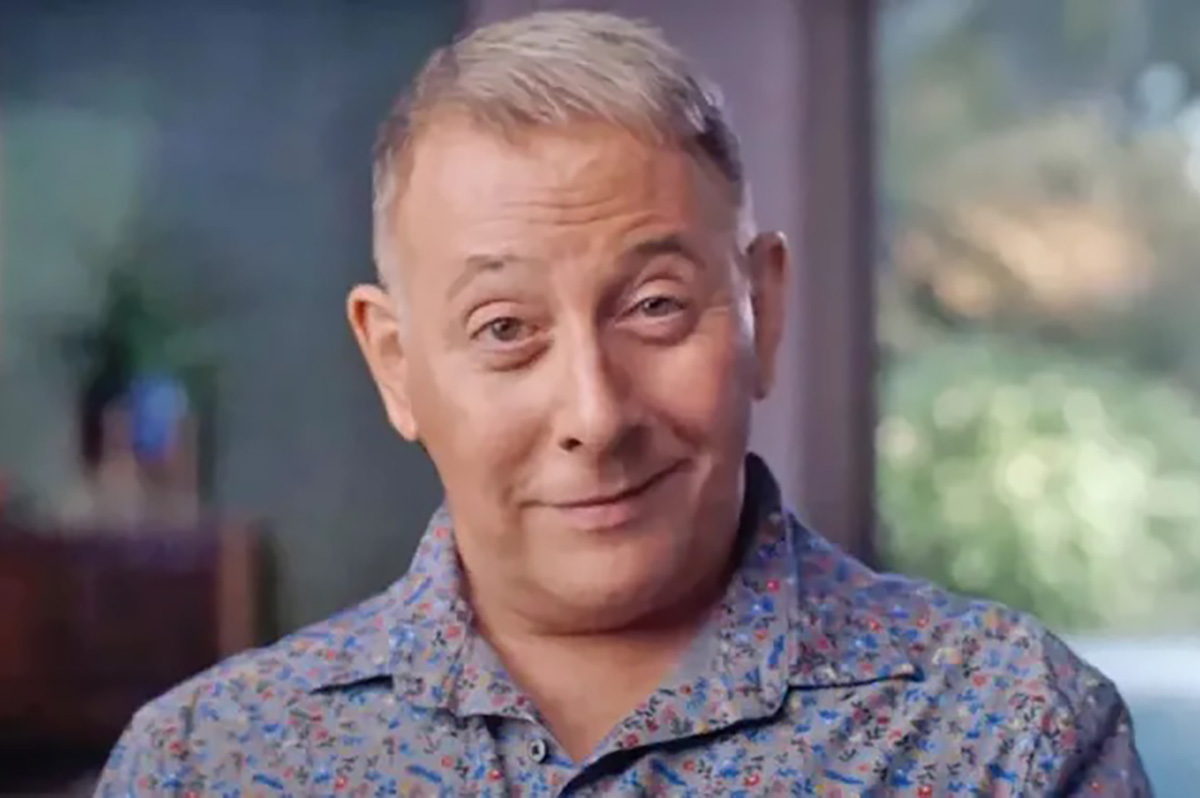
While Paul Reubens never publicly came out as gay before passing away in 2023, the two-part documentary “Pee-wee as Himself” premiered back in May on HBO Max, giving the legendary comedian a chance to posthumously open up to the world. Directed by Matt Wolf, the documentary explores how Reubens found his alter ego Pee-Wee Herman and why he kept his private life private.
The documentary won an Emmy in the Outstanding Documentary or Nonfiction Special category and remains one of the most critically acclaimed titles of the year with a 100% Rotten Tomatoes score. Also worth noting, the National Geographic documentary Sally told the posthumous coming out story of Sally Ride through the help of her long-time partner, Tam O’Shaughnessy.
5. Lady Gaga releases ‘Mayhem’
Lady Gaga entered a new phase of her musical career with the release of Mayhem, her seventh album to date. From the frenzy-inducing pop hit Abracadabra to the memorable Bruno Mars duet featured on “Die With a Smile,” seeing Gaga return to her roots and make an album for the most die-hard of fans was especially rewarding after the underwhelming film releases of “House of Gucci” and “Joker: Folie à Deux.” Gaga has been touring with The Mayhem Ball since July, her first arena tour since 2018. She even extended her tour into 2026 with more North American dates, so the party isn’t stopping anytime soon. And Gaga is even set to make an appearance next May in “The Devil Wears Prada 2.”
4. Cynthia Erivo, Ariana Grande perform at the Oscars
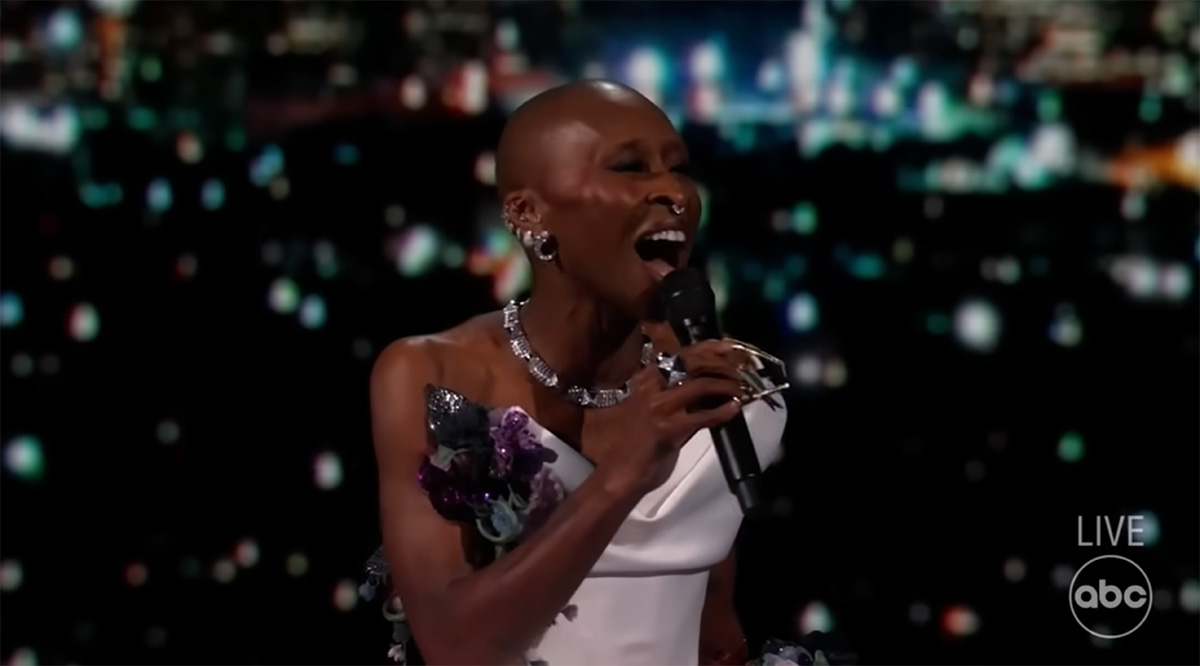
While “Wicked: For Good” didn’t quite reach the heights of the first film, we will forever have Cynthia Erivo and Ariana Grande’s breathtaking live performance that opened the 97th Academy Awards. The pair sang a rendition of “Over the Rainbow,” “Home,” and “Defying Gravity,” paying proper homage to the original 1939 “Wizard of Oz.” Even non-Wicked fans can’t deny how magical and brilliantly staged this performance was. With both Erivo and Grande up for acting Oscars last year, they’re hoping to repeat success and make history with consecutive nominations. Either way, let’s hope there’s another live performance in the making, especially with two new original songs (The Girl in the Bubble and No Place Like Home) in the mix.
3. Indya Moore speaks out against Ryan Murphy
Indya Moore has consistently used social media as a platform for activism, and in September, posted a 30-minute Instagram live speaking out against “Pose” co-creator Ryan Murphy. Moore claimed that Murphy wasn’t being a true activist for trans people. “Ryan Murphy, we need you to do more. You need to address the racism, the violence, and the targeting of people on your productions, Ryan Murphy. You do need to make sure trans people are paid equally. Yes, Janet did the right thing,” Moore said. Murphy was also back in the headlines this year for the critically panned “All’s Fair” and the controversial “Monster: The Ed Gein Story” starring Laurie Metcalf and Charlie Hunnam.
2. Cole Escola wins Tony for Best Leading Actor
Few pop culture moments this year brought us together more than Cole Escola winning a Tony award for “Oh, Mary!” the Broadway show they created, wrote and starred in (we love a triple threat!) Escola made history by becoming the first nonbinary person to win a Tony in the leading actor category, and seeing them excitedly rush to the stage wearing a Bernadette Peters-inspired gown instantly became a viral social media moment.
The cherry on top of Escola’s major moment is the recent news that they are writing a Miss Piggy movie with Jennifer Lawrence and Emma Stone producing — news that also broke the internet for the better. We cannot wait!
1. Jonathan Bailey makes gay history as ‘Sexiest Man Alive’

The same year as his on-screen roles in blockbusters “Jurassic World Rebirth” and “Wicked: For Good,” Jonathan Bailey made history as the first openly gay man to be named People magazine’s “Sexiest Man Alive.” The fact that it took 40 years for an openly gay man to earn the title is a signifier of how far we still have to go with queer representation, and seeing Bailey celebrated is just one small step in the right direction.
“There’s so many people that want to do brilliant stuff who feel like they can’t,” he told PEOPLE, “and I know the LGBT sector is under immense threat at the moment. So it’s been amazing to meet people who have the expertise and see potential that I could have only dreamed of.” In 2024, Bailey founded the charity titled The Shameless Fund, which raises money for LGBTQ+ organizations.
a&e features
Your guide to D.C.’s queer New Year’s Eve parties
Ring in 2026 with drag, leather, Champagne, and more
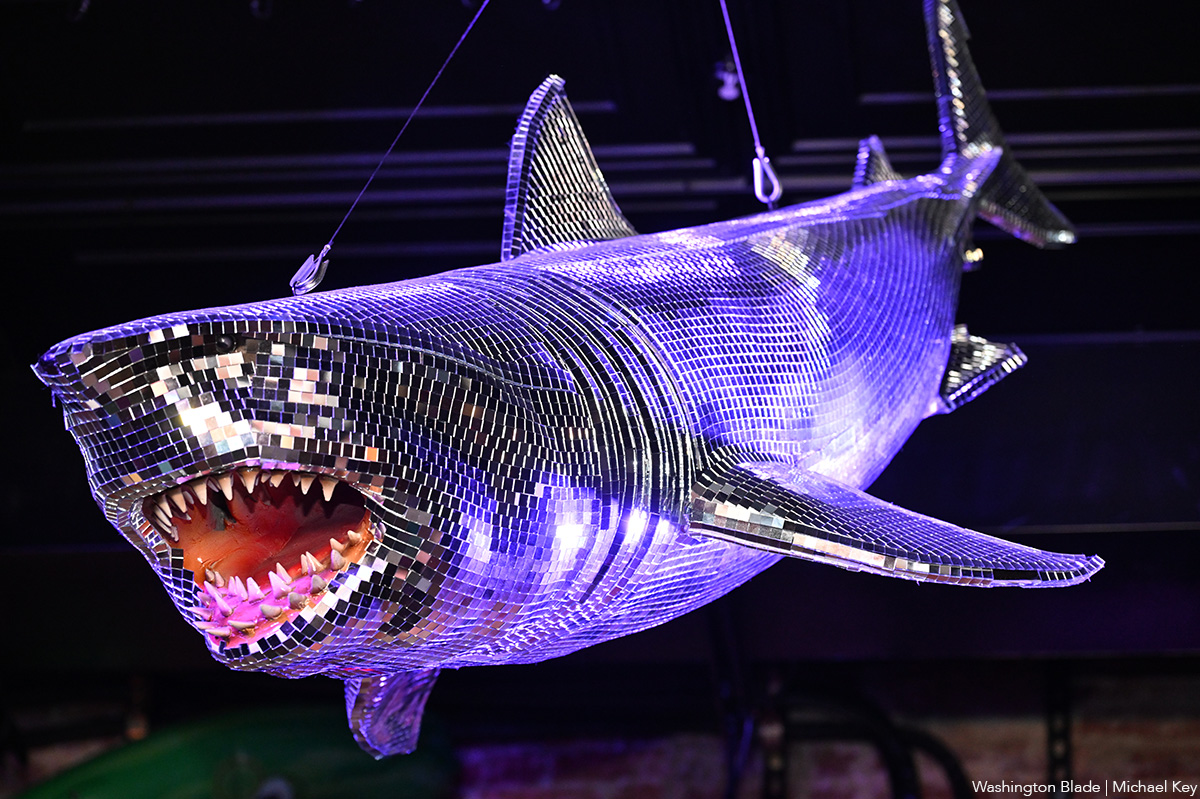
With Christmas in the rear view mirror, we can turn our attention to ringing in a much-anticipated New Year with a slew of local LGBTQ parties. Here’s what’s on tap.
Pitchers
This spacious Adams Morgan bar is hosting the “Pitchers’ Perfect New Year’s Eve.” There will be a midnight Champagne toast, the ball drop on the big screens, and no cover, all night long. The bar doesn’t close until 4 a.m., and the kitchen will be open late (though not until close). All five floors will be open for the party, and party favors are promised.
Trade
D.C.’s hottest bar/club combo is leaning into the Shark motif with its NYE party, “Feeding Frenzy.” The party is a “glitterati-infused Naughty-cal New Year’s Even in the Shark Tank, where the boats are churning and the sharks are circling.” Trade also boasts no cover charge, with doors opening at 5 p.m. and the aforementioned Shark Tank opening at 9 p.m.. Four DJs will be spread across the two spaces; midnight hostess is played by Vagenesis and the two sea sirens sensuously calling are Anathema and Justin Williams.
Number Nine
While Trade will have two DJs as part of one party, Number Nine will host two separate parties, one on each floor. The first floor is classic Number Nine, a more casual-style event with the countdown on TVs and a Champagne midnight toast. There will be no cover and doors open at 5 p.m. Upstairs will be hosted by Capital Sapphics for its second annual NYE gathering. Tickets (about $50) include a midnight Champagne toast, curated drink menu, sapphic DJ set by Rijak, and tarot readings by Yooji.
Crush
Crush will kick off NYE with a free drag bingo at 8 p.m. for the early birds. Post-bingo, there will be a cover for the rest of the evening, featuring two DJs. The cover ($20 limited pre-sale that includes line skip until 11 p.m.; $25 at the door after 9 p.m.) includes one free N/A or Crush, a Champagne toast, and party favors (“the legal kind”). More details on Eventbrite.
Bunker
This subterranean lair is hosting a NYE party entitled “Frosted & Fur: Aspen After Dark New Year’s Eve Celebration.” Arriety from Rupaul Season 15 is set to host, with International DJ Alex Lo. Doors open at 9 p.m. and close at 3 p.m.; there is a midnight Champagne toast. Cover is $25, plus an optional $99 all-you-can-drink package.
District Eagle
This leather-focused bar is hosting “Bulge” for its NYE party. Each District Eagle floor will have its own music and vibe. Doors run from 7 p.m.-3 a.m. and cover is $15. There will be a Champagne toast at midnight, as well as drink specials during the event.
Kiki, Shakiki
Kiki and its new sister bar program Shakiki (in the old Shakers space) will have the same type of party on New Year’s Eve. Both bars open their doors at 5 p.m. and stay open until closing time. Both will offer a Champagne toast at midnight. At Kiki, DJ Vodkatrina will play; at Shakiki, it’ll be DJ Alex Love. Kiki keeps the party going on New Year’s Day, opening at 2 p.m., to celebrate Kiki’s fourth anniversary. There will be a drag show at 6 p.m. and an early 2000s dance party 4-8 p.m.
Spark
This bar and its new menu of alcoholic and twin N/A drinks will host a NYE party with music by DJ Emerald Fox. Given this menu, there will be a complimentary toast at midnight, guests can choose either sparkling wine with or without alcohol. No cover, but Spark is also offering optional wristbands at the door for $35 open bar 11 p.m.-1 a.m. (mid-shelf liquor & all NA drinks).
-

 National4 days ago
National4 days agoWhat to watch for in 2026: midterms, Supreme Court, and more
-

 District of Columbia5 days ago
District of Columbia5 days agoTwo pioneering gay journalists to speak at Thursday event
-

 a&e features5 days ago
a&e features5 days agoQueer highlights of the 2026 Critics Choice Awards: Aunt Gladys, that ‘Heated Rivalry’ shoutout and more
-

 Colombia5 days ago
Colombia5 days agoBlade travels to Colombia after U.S. forces seize Maduro in Venezuela



